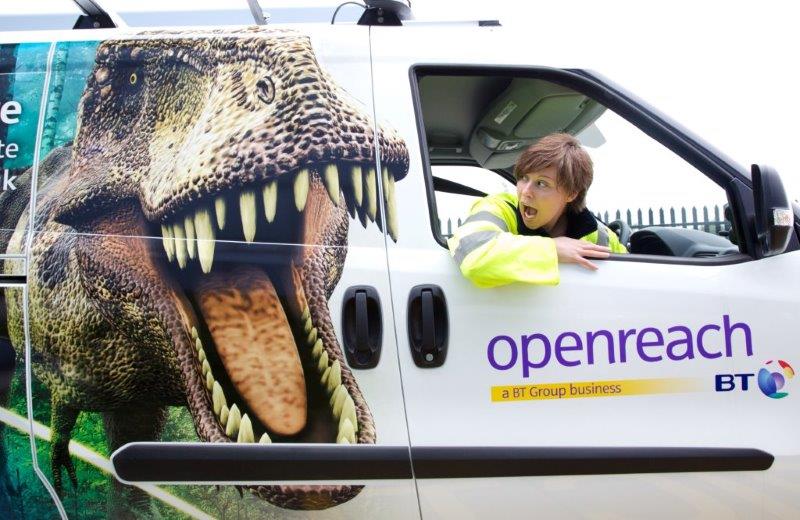The protracted saga concerning the future of BT Openreach seems to have come to an anti-climax with BT agreeing Ofcom’s ambiguous ‘legal separation’ solution.
March 10, 2017

The protracted saga concerning the future of BT Openreach seems to have come to an anti-climax with BT agreeing Ofcom’s ambiguous ‘legal separation’ solution.
The paradoxical situation of broadband suppliers such as Sky and TalkTalk relying on their main competitor to maintain their network has always been problematic. As the former state monopoly BT owns most of the fixed-line infrastructure in the UK, with Virgin Media its only national competitor, and it leases that capacity via the sub-brand Openreach.
Openreach customers have regularly complained they feel they get an inferior service to that provided to BT itself when it comes to network maintenance, customer service, etc. BT, of course, has always denied this is the case but you don’t need to be the most rabid conspiracy theorist to believe Openreach might feel less urgency towards non-BT customers.
As the UK telecoms regulator Ofcom has faced constant calls to prise Openreach from BT’s claw-like grip and make it a 100% independent company. BT is not keen on that idea and Ofcom has generally tried to steer some kind of middle course involving increments of partial separation.
Last summer Ofcom ruled that Openreach has to become an independent legal entity from BT and BT has tip-toed towards that ever since – apparently trying to see how little separation it can get away with. Ofcom tired of this toward the end of last year and threatened to deliver BT into the merciless clutches of the EU if it didn’t start taking this stuff a bit more seriously.
Even then BT danced around the issue, making a big deal out of the appointment of some supposedly independent Openreach non-executive board members, but Ofcom wasn’t impressed and stressed every box in its legal separation checklist needed to be ticked. Today’s announcement essentially signifies that BT has decided to stop messing around and finally do what Ofcom told it to do eight months ago.
“This is a significant day for phone and broadband users,” said Ofcom boss Sharon White. “The new Openreach will be built to serve all its customers equally, working truly independently and taking investment decisions on behalf of the whole industry – not just BT.
“We welcome BT’s decision to make these reforms, which means they can be implemented much more quickly. We will carefully monitor how the new Openreach performs, while continuing our work to improve the quality of service offered by all telecoms companies.”
“I believe this agreement will serve the long-term interests of millions of UK households, businesses and service providers that rely on our infrastructure,” said BT CEO Gavin Hasselhoff Patterson. “It will also end a period of uncertainty for our people and support further investment in the UK’s digital infrastructure.
“This has been a long and challenging review where we have been balancing a number of competing interests. We have listened to criticism of our business and as a result are willing to make fundamental changes to the way Openreach will work in the future.”
What isn’t resolved it the question of how it’s possible for Openreach to be truly independent of BT when it’s still owned by it and when its board is appointed by BT. On the flip side this does mean that Openreach will be under more scrutiny than ever and will need to be seen to be squeaky clean when it comes to how it treats all its customers.
Despite this not being the full separation it had long campaigned for, Sky was surprisingly OK with the move. “This is a welcome step that we have long called for on behalf of our customers,” said a Sky spokesperson. “A more independent Openreach is a step towards delivering better service to customers and the investment that the UK needs. It’s important that today’s agreement is now implemented by BT in good faith and without delay.”
Several other UK broadband players also offered reaction but, on the whole, their comments were so flagrantly self-serving we won’t insult you by copying and pasting them. Among the neutral commentators Kester Mann of CCS Insight reckons it’s a good outcome. “BT’s rivals, notably Sky and TalkTalk, will publically claim that the regulator should have gone further by enforcing a full structural separation,” he said. “However, this option was always the most radical and controversial the regulator could have taken. In private they should be more than satisfied with the changes Ofcom has pushed through.”
Richard Neudegg at uSwitch agrees that everyone should just give the moaning a rest now. “The industry should now draw a line under the debate on the structure of Openreach, and focus on actually delivering the better service everyone wants to see,” he said. “Most consumers won’t be bothered whether or not ‘a BT Group business’ is written on the side of Openreach vans, what matters is the UK’s digital infrastructure actually getting better in practice.”
For anyone struggling with severe insomnia, and only if all other alternatives have failed, you can read the full document detailing what BT has signed up for here. While it is a fudge, so long as BT is held to account for any transgressions of the new agreement it should deliver the desired outcome Openreach customers always claimed to want. Which is presumably why they’re being gracious about it, for now.
About the Author(s)
You May Also Like








.png?width=300&auto=webp&quality=80&disable=upscale)


_1.jpg?width=300&auto=webp&quality=80&disable=upscale)


.png?width=800&auto=webp&quality=80&disable=upscale)